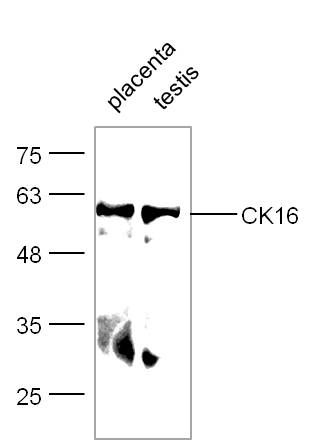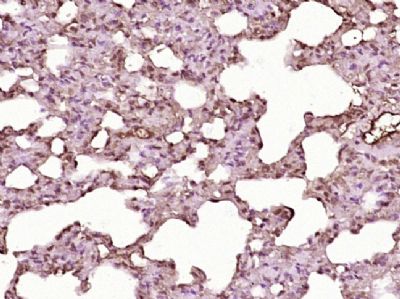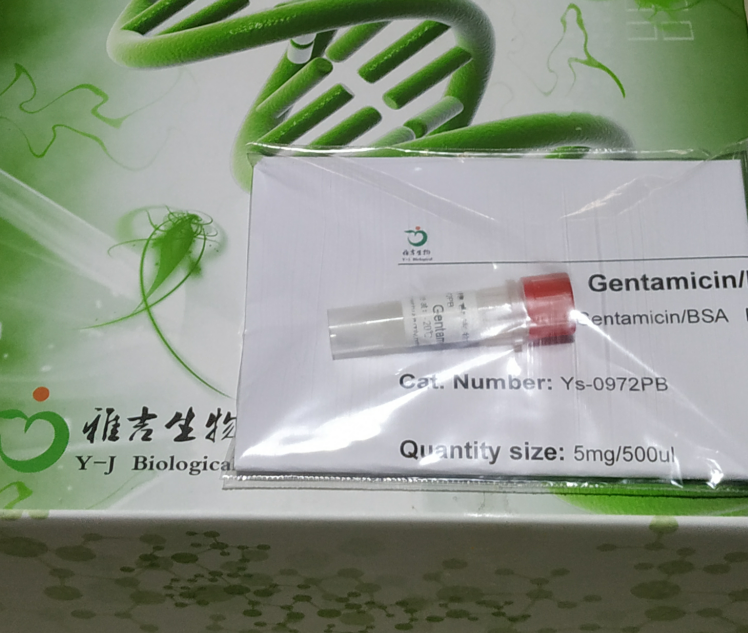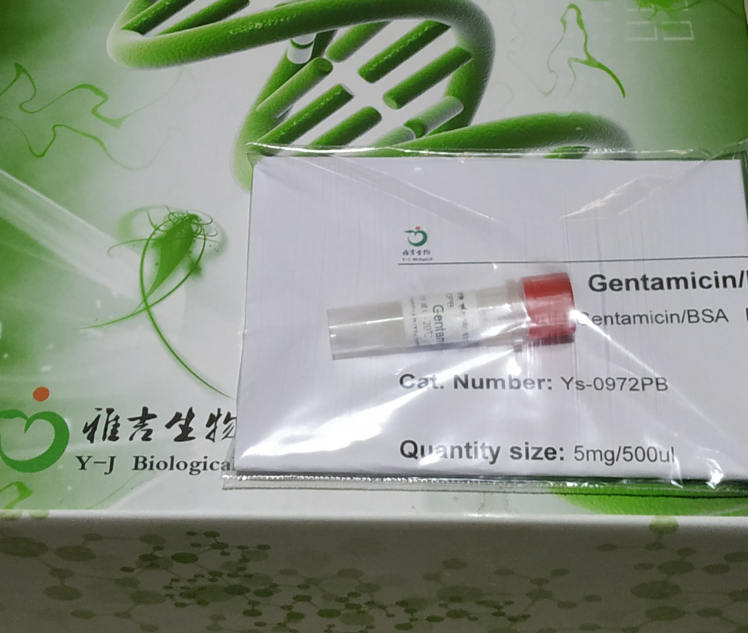中文名 稱細胞角蛋白16抗體
別 名 Cytokeratin 16; CK 16; Focal non epidermolytic palmoplantar keratoderma; K 16; K16; K1CP; CK-16; CK16; Cytokeratin-16; FNEPPK; K1C16_HUMAN; Keratin; Keratin-16; type I cytoskeletal 16; Keratin 16; Keratin type I cytoskeletal 16; Keratin16; KRT 16; KRT16; KRT16A; NEPPK.
研究領(lǐng)域腫瘤 信號轉(zhuǎn)導 細胞骨架
抗體來源 Rabbit
克隆類型 Polyclonal
交叉反應(yīng) Mouse, Rat, (predicted: Human, Dog, Cow, Horse, )
產(chǎn)品應(yīng)用 WB=1:500-2000 ELISA=1:500-1000 IHC-P=1:100-500 IHC-F=1:100-500 IF=1:100-500 (石蠟切片需做抗原修復)
not yet tested in other applications.
optimal dilutions/concentrations should be determined by the end user.
分 子 量 51kDa
細胞定位 細胞漿
性 狀 Liquid
濃 度 mg/ml
免 疫 原 KLH conjugated synthetic peptide derived from human CK16:371-473/473
亞 型 IgG
純化方法 affinity purified by Protein A
儲 存 液 0.01M TBS(pH7.4) with 1% BSA, 0.03% Proclin300 and 50% Glycerol.
保存條件 Shipped at 4℃. Store at -20 °C for one year. Avoid repeated freeze/thaw cycles.
PubMedPubMed
產(chǎn)品介紹 The protein encoded by this gene is a member of the keratin gene family. The keratins are intermediate filament proteins responsible for the structural integrity of epithelial cells and are subdivided into cytokeratins and hair keratins. Most of the type I cytokeratins consist of acidic proteins which are arranged in pairs of heterotypic keratin chains and are clustered in a region of chromosome 17q12-q21. This keratin has been coexpressed with keratin 14 in a number of epithelial tissues, including esophagus, tongue, and hair follicles. Mutations in this gene are associated with type 1 pachyonychia congenita, non-epidermolytic palmoplantar keratoderma and unilateral palmoplantar verrucous nevus. [provided by RefSeq, Jul 2008].
Subunit:
Heterodimer of a type I and a type II keratin. KRT16 associates with KRT6 isomers. Interacts with TCHP. Interacts with TRADD.
Tissue Specificity:
Expressed in the hair follicle, nail bed and in mucosal stratified squamous epithelia and, suprabasally, in oral epithelium and palmoplantar epidermis. Also found in luminal cells of sweat and mammary gland ducts.
DISEASE:
Pachyonychia congenita 1 (PC1) [MIM:167200]: An autosomal dominant ectodermal dysplasia characterized by hypertrophic nail dystrophy resulting in onchyogryposis (thickening and increase in curvature of the nail), palmoplantar keratoderma, follicular hyperkeratosis, and oral leukokeratosis. Hyperhidrosis of the hands and feet is usually present. Note=The disease is caused by mutations affecting the gene represented in this entry.
Keratoderma, palmoplantar, non-epidermolytic, focal (FNEPPK) [MIM:613000]: A dermatological disorder characterized by non-epidermolytic palmoplantar keratoderma limited to the pressure points on the balls of the feet, with later mild involvement on the palms. Oral, genital and follicular keratotic lesions are often present. Note=The disease is caused by mutations affecting the gene represented in this entry.
Unilateral palmoplantar verrucous nevus (UPVN) [MIM:144200]: UPVN is characterized by a localized epidermolytic hyperkeratosis in parts of the right palm and the right sole, following the lines of Blaschko. Note=The disease is caused by mutations affecting the gene represented in this entry.
Note=KRT16 and KRT17 are coexpressed only in pathological situations such as metaplasias and carcinomas of the uterine cervix and in psoriasis vulgaris.
Similarity:
Belongs to the intermediate filament family.
SWISS:
P08779
Gene ID:
3868
Database links:
Entrez Gene: 3868 Human
Omim: 148067 Human
SwissProt: P08779 Human
Unigene: 655160 Human
Important Note:
This product as supplied is intended for research use only, not for use in human, therapeutic or diagnostic applications.
| 產(chǎn)品圖片 |  Sample: Placenta(Mouse) Lysate at 30 ug Testis (Mouse) Lysate at 30 ug Primary:Anti-CK16 (1270R) at 1:300 dilution; Secondary: HRP conjugated Goat-Anti-rabbit IgG(bs-0295G-HRP) at 1: 5000 dilution; Predicted band size: 51 kD Observed band size: 55 kD  Paraformaldehyde-fixed, paraffin embedded (rat lung tissue); Antigen retrieval by boiling in sodium citrate buffer (pH6.0) for 15min; Block endogenous peroxidase by 3% hydrogen peroxide for 20 minutes; Blocking buffer (normal goat serum) at 37°C for 30min; Antibody incubation with (CK16) Polyclonal Antibody, Unconjugated (1270R) at 1:400 overnight at 4°C, followed by operating according to SP Kit(Rabbit) (0023) instructionsand DAB staining. |
我要詢價
*聯(lián)系方式:
(可以是QQ、MSN、電子郵箱、電話等,您的聯(lián)系方式不會被公開)
*內(nèi)容:









